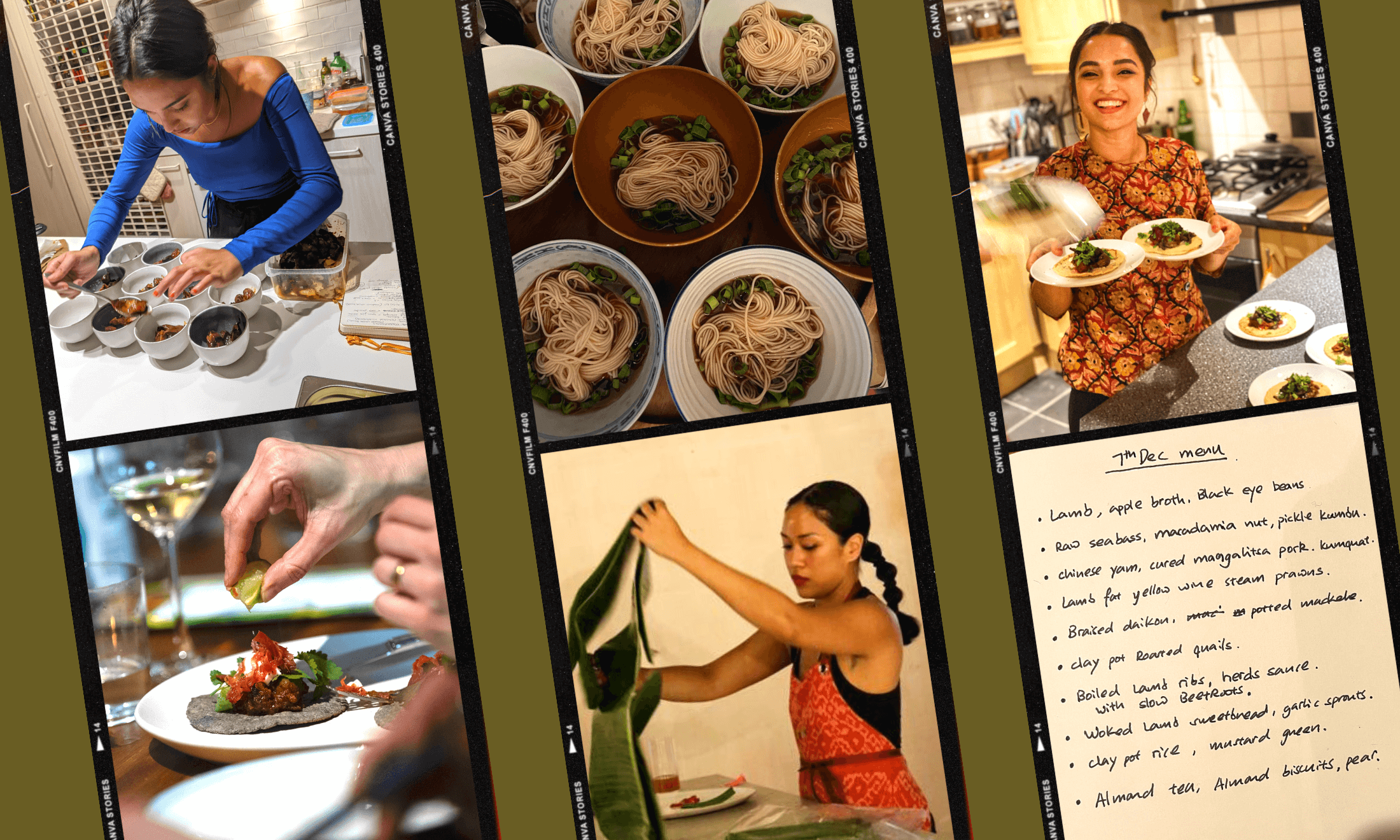
Illustration by Serina Kitazono
Why are so many ‘expats’ xenophobic?
After Tommy Robinson announced he was moving to Spain in July, Joanna Fuertes reflects on the phenomenon of racist Brits moving abroad.
Joanna Fuertes
14 Oct 2020
If you’re travelling alone and you stand on a beach or at a bus stop or in a supermarket queue long enough, an expat will appear beside you to tell a casually xenophobic story. They come in various flavours; some reminiscing about carpet-bombing Iraq, others enraged their adoptive country doesn’t have exactly the same creature comforts as home.
I am in Mexico and I’m holding my breath having lost the job I excitedly moved country for thanks to the pandemic. It’s left me in the unusual situation of being exposed to expats so stereotypical I can’t be sure they’re not walking-parodies, who are now finding themselves subject to the restrictions on freedom of movement reserved for ‘immigrants’.
Far from the initial morbid delight that Covid-19 may be a chance to exploit cheap holidays, it’s been surreal watching free-spirited, wanderlust types losing their cool over costly travel and shuttered borders. In living memory, the only reference points for emergency repatriation have been in response to natural disasters and acts of terrorism. But rather than returning home to hunker down with loved ones, the sensible option has been to stay put.
For Brits, a catastrophic response to the virus has taken place against an equally catastrophic handling of Brexit and the UK’s official withdrawal from the EU which is still, unbelievably, on course to conclude on 31 December. As the UK has been brought to its knees by Covid-19 the dread has been neatly compounded by Brexiteer commentators, including Andrew Neil, video-calling into news interviews from their European holiday homes.
True to form in July, former EDL leader Tommy Robinson was caught lying low in Marbella, Spain. Unclear whether he went to the Costa del Sol during the Foreign Office’s advisory that non-essential travel should be avoided, Tommy shared a video on Russian platform VK to clarify. The fiercely pro-Brexit and anti-immigration campaigner explained that he’d taken refuge in Marbella after an alleged, and as yet still unsubstantiated, “arson attack” on his partner’s home in Bedfordshire, and hoped to “permanently relocate” there.
“It’s been surreal watching free-spirited, wanderlust types losing their cool over costly travel and shuttered borders”
“I might be wrong but I’m going to guess that Tommy does not speak Spanish,” muses Natalia, a language tutor also based in Marbella. “Spain has a good relationship with the UK in terms of the strong and [otherwise] steady business from tourism… but the feeling towards the expat community is less kind. I think now that the more casual expats are racing for residency before the Brexit deadline they’re realising what they’ve lost.”
Natalia explains, “One way to get permanent residency here now is qualifying as a highly-skilled worker. I’m not sure Tommy would qualify as highly-skilled at anything.”
Natalia echoes an anecdotal though firmly-held criticism of predominantly white and English-speaking expat communities. The criticism being that they are unskilled, do not know the local language and build enclaves that are incredibly insular. A summation which, taken out of context, could be farted out by Tommy Robinson himself. At the very least, Tommy’s sob story that he no longer “felt safe” to justify going on a jaunt to Marbella amidst a global pandemic, does raise the much-debated question of when is a person an immigrant and when are they an expat?
If you were to boil it down to semantics the definition of immigrant has always been someone that uproots their life in hopes of opportunity and safety, encompassing the migrant, the refugee, the asylum seeker. In contrast, the expat is someone who moves temporarily, be it one year or ten, to get more bang for their buck. But both still, ultimately, move from their native country for a better quality of life. We all know, however, that one is subject to more derision than the other. One is associated with being white and financially comfortable, the other is not. One is welcomed with a glass of Ouzo, the other is dropped back in the Aegean sea to die.
But in today’s bizarro reverse-universe, being forcibly turned away from borders, crying in government-mandated quarantines (like TikTok influencer Charly Jordan) and heckled in the street is no longer the preserve of the downtrodden “immigrant”. Off the back of a group of tourists having “Corona!” chanted at them in Johannesburg and numerous reports of white expats being taunted in African countries, South African journalist Eusebius McKaiser characterised the subtext of the tension as “payback time”. He explained the bad-feeling stemming from the idea that Covid-19 is “the comeuppance that the Global North is getting its just desserts for the histories of colonialism and racism”.
“One is welcomed with a glass of Ouzo, the other is dropped back in the Aegean sea to die”
While not attracting the same ire as, say, the sunburnt expat starting beer brawls on the Malaga strip, the pandemic has similarly brought us to a boiling point with “digital nomads” and the practice of perpetual tourism. Remote work has allowed for a younger, more middle-class and more liberal traveller. I include myself in this as someone that ran full pelt away from London rent, with very romantic ideas around travel, armed with work expertise that has felt increasingly frivolous as Covid-19 has tightened its grip.
In a tone deaf blog post, self-described digital nomad Anna Pelova wrote, “Travel shaming seems to be the new trend of cancel culture. [We] were once cool people…We were called brave and inspiring. [Now] it’s 2020 and we travelers are treated like people with an STD.” Conveniently, equating a deadly virus with chlamydia kind of exemplifies the entitlement and obliviousness that is now throwing our feelings towards travel and emigration through a loop.
Rafael*, a Mexico-born, California-raised, but now Mexico-again-based artist living in the expat-heavy Riviera Maya believes there’s a rocky road ahead. “I think that lifestyle, even though lots may have a genuine interest in learning about the local culture, means you never connect with the community. And that will only get worse [with Covid-19]… When you go on vacation you don’t connect because you’re here for a short time but if you’re working online and only going to ‘nomad’ meetups you don’t connect either,” he laughs.
Good intentions or not, parachuting into these countries with a much bigger foreign income and without the language, triggers exactly the same gentrification that even the most well-meaning travellers may wring their hands over in their home countries. “Now, with the pandemic I think that ‘us’ against ‘them’ feeling will be on the surface,” Rafael adds.
It’s also salient to note here that we’re all susceptible to abusing expat privileges. Many people of colour travelling in this way, while you can and do experience racism, will still find themselves at the top of the social pecking order. It leaves many navigating a tricky learning curve – trying to extoll your forward-thinking virtues while unequivocally adding to the problem in your adoptive country.
“You’re often coming into a totally new to you but well-established [caste] system. As a ‘woke’ Westerner suddenly finding yourself in bougie apartments and able to have someone to do all your laundry can be a trip. Like, you want to talk about privilege? And in a pandemic? No.” Rafael adds.
For now, at least, international travel returning to anything near to the normal we once took for granted continues to hang in the balance. However, with a resurgence of cases threatening to force a second lockdown and less than three months till the fateful Brexit deadline, what does look beyond doubt is the UK will be ringing in its loneliest and most isolated New Years in history. For all the tragedy that this virus has and continues to reap the sage and retributive lesson we’re living through, on who gets the privilege of freedom of movement, is a powerful one.
This article was amended on 3 November, 2022, to clarify that Anna Pelova wrote the statement quoted within this piece. The original version of this article described that Pelova ‘cried’ this quote.






